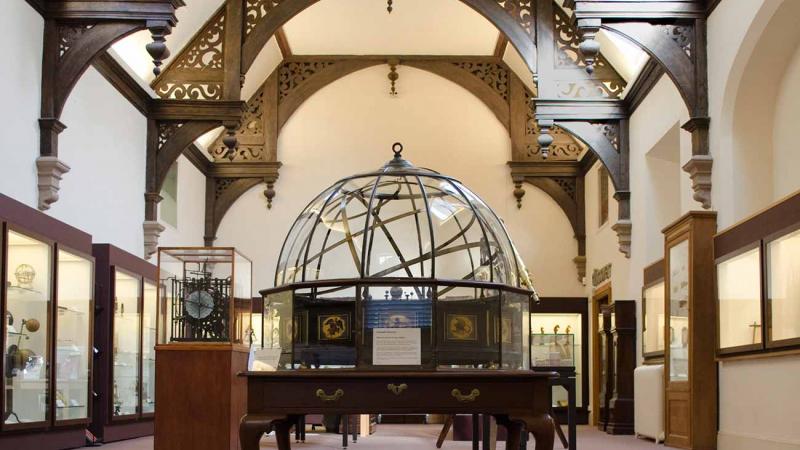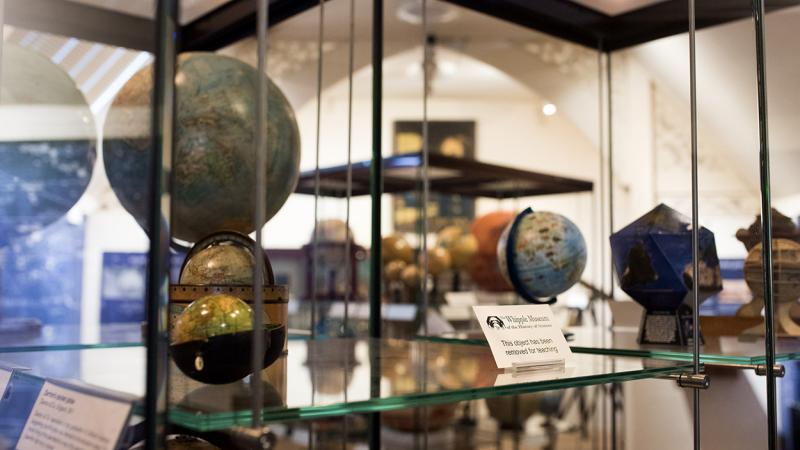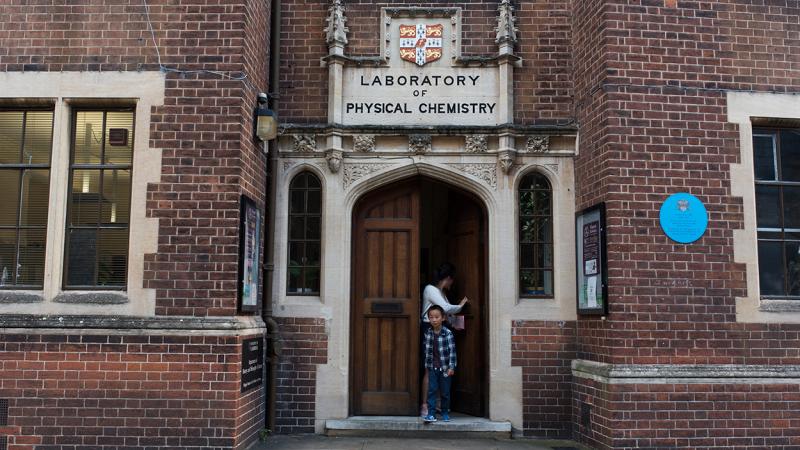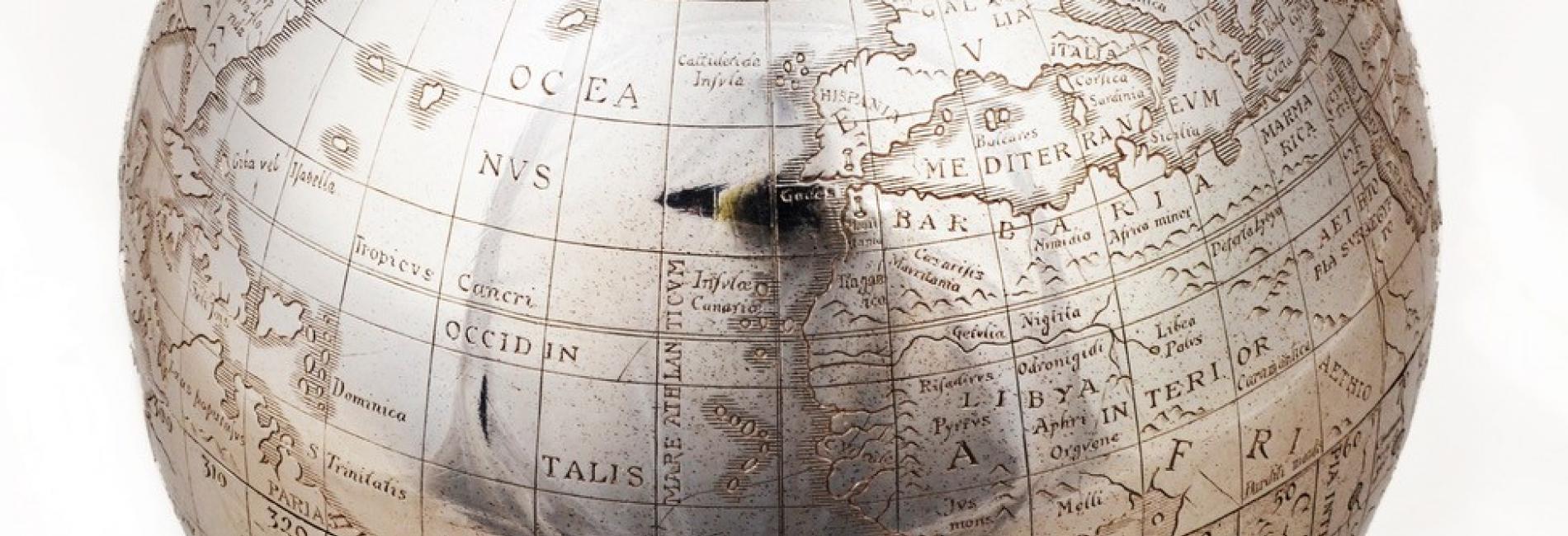Information
The Museum is embedded within the Department of the History and Philosophy of Science.
Dr Joshua Nall, Curator of Modern Sciences
Collections in Action: read Whipple Museum research case studies
The Whipple Museum of the History of Science holds internationally important collections of scientific instruments, apparatus, models, pictures, prints, photographs, books and other material related to the history of science.
The Whipple Museum was founded in 1944 when Robert Stewart Whipple presented his collection of scientific instruments to the University of Cambridge. The Museum’s collection is Designated for its international importance and includes scientific instruments, apparatus, models, pictures, prints, photographs, books and other material related to the history of science.

The Museum’s holdings are particularly strong in material dating from the 17th to the 19th centuries, especially objects produced by English instrument makers, although the collection contains objects dating from the medieval period to the present day. Instruments of astronomy, navigation, surveying, drawing and calculating are well represented, as are sundials, mathematical instruments and early electrical apparatus. Since Robert Whipple’s initial gift of the collection, the Museum has come to house many instruments formerly used in the Colleges and Departments of the University of Cambridge.

Key special collections include:
- The Cambridge Instrument Company Collection, comprising over 300 instruments and over 1,000 pieces of sales and trade literature issued by the firm between the 1880s and 1970s
- The Holden-White collection of over 100 pocket sundials
- Collections of nearly 1,000 botanical teaching diagrams from the Cambridge Dept. of Plant Sciences (formerly Botany) and nearly 100 teaching diagrams from the Cambridge Department of Zoology
- The J. H. Steward collection of around 100 instruments from that firm
- The Francis Hookham Collection of Hand-Held Electronic Calculators, comprising more than 400 examples
- The Cavendish Collection, with more than 250 objects transferred from the Cavendish Laboratory of Physics

The Museum prides itself on being both a world-leading centre for object- and collection-based teaching and research, and a public space for engaging diverse audiences of all ages and backgrounds.
- The forgery of scientific instruments in the late 19th and early 20th centuries
- Metallographic analysis of alloy types in scientific instrument-making from the 15th to the 20th century
- The use and movement of astronomical and survey science instrumentation in the British Empire, 18th century to mid-20th century
- The degradation of plastics in 20th-century scientific objects and its prevention/conservation
Exhibitions are planned 18 months in advance.


